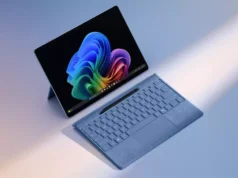Stung by competition from AMD, Intel has come up with a couple of new 48-core chips which can be considered to be a response to AMD Epyc chips which have come to offer similar or even greater performance but at a lesser price point. The new chip offerings are also seen as an attempt on the part of Intel to reinforce its server and data center market segment which have increasingly come under threat from AMD Epyc based systems.
Towards that, the new Intel Xeon E series chip based on Coffee Lake based E-2100 architecture have a max speed rating of 4.
7 GHz and come with up to 6 CPU cores. The chip can support up to a max of 64 GB of DDR4 RAM though Intel said the chip will be able to support even 128 GB RAM post a BIOS update forthcoming in early 2019.
Given the specs, the chip should suffice the needs of small servers or workstation computers, a key market segment that Intel has had a dominant position but is also being aimed by AMD with its new Epyc chips. That includes small or medium sized businesses or cloud service providers.
Next higher up is the Cascade Lake AP which also come with up to 48 cores while the other salient feature of the Cascade Lake chip is its support for 12 DDR4 memory channels per socket beside supporting up to a max of 2 sockets.
Intel also promises a higher level of performance with the new Cascade Lake chips, including support for Artificial Intelligence based applications, infrastructure-as-a-service (IaaS) workloads or high-performance computing (HPC).
Among its intended application, the Cascade Lake chips can be a nice fit for entry-level servers and other related computing platforms. That said, Intel is also claiming the new high-performance chip can be equally proficient in almost all computing segments while delivering enough data security measures for adequate protection of information.
As for the availability of the new Xeon family of chips, Intel said the E-2100 based Coffee Lake chips are on offer right away though the Cascade Lake chips aren’t expected to be ready to hit streets before mid-2019.










